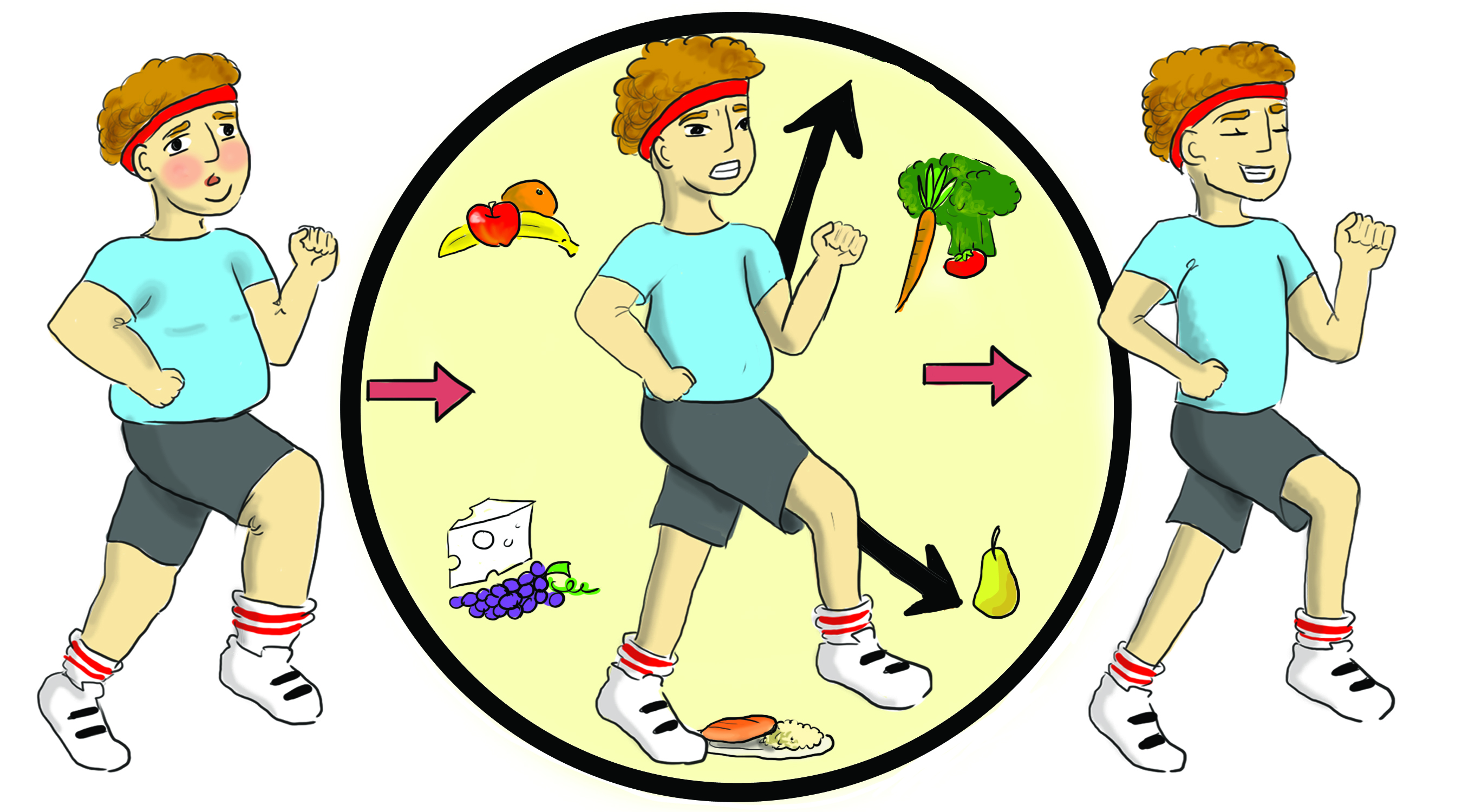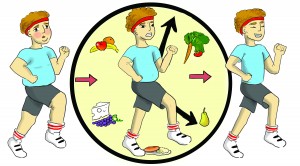Gain Knowledge, Lose Weight


Weight loss is the leading New Year’s resolution of modern day. But in an era of instant gratifications the vast majority do not educate themselves on how to achieve more timely but lasting results. Features Editor Colleen Connolly seeks out the information required for taking a proper approach.
When a new page is turned on the calendar, it feels as though a new page has been turned in the lives of those wishing to better themselves.
According to the University of Scranton Journal of Clinical Psychology, 45 per cent of Americans make a New Year’s resolution and the most common of 2012 was to lose weight. However, only a discouraging 8 per cent were actually successful in achieving their goals.
“I think maybe it’s because people wanted fast results and didn’t realize that it was something that they should just adopt for the rest of their life,” said certified nutrition practitioner Charlene Galloway. Galloway graduated from the Institute of Holistic Nutrition in Mississauga, Ontario during early 2009 with first class honors and currently works as a nutrition consultant at Willow Lane Natural Foods in Acton, Ontario.
“In our current society we can get things so quickly,” added Galloway. “And I think the problem is that a lot of people don’t realize that their own bodies are not instant, that it takes time and it takes some effort. But people want instant results so within four weeks of going to the gym if they are not dropping the weight they wanted to drop then they just get frustrated.”
A further problem may be that those willing to make a serious commitment to their resolutions are not focusing their efforts productively. Even with five weeks or even ten weeks at the gym, exercise is not enough for someone looking to lose weight in a healthy and sustainable manner. The best way to make a lasting change is to get informed as to how weight loss works in the body and the foods we eat play a very large role in that process.
“The simplest explanation [of weight loss] is a mathematical calculation of calories in and calories burned and most people will use that only,” said Galloway. “But if you said ‘I’m only going to eat 1,500 calories a day’ there would be a very bad way of doing it and you would never lose any weight and there would be very good ways.”
The kinds of calories we consume matter a great deal because different kinds of food have different effects on our bodies, but they all serve a purpose. By understanding that purpose, it becomes easier to consume them in a manner that is advantageous for our health.
“Glucose is the fundamental building block your body needs, it’s just that you can give it too much,” stressed Galloway.
Glucose, or sugar, is essentially body fuel. Our bodies turn most of what we eat into glucose in order for them to run but if they are receiving more than what is required, it gets stored as fat. However, if there is less intake than what is required the body will then take from these reserves and that’s how we burn fat.
“A lot of people are afraid of fat and they shouldn’t be,” Galloway said. “The real villain is sugar and things that turn into sugar very quickly.”
Foods that turn into sugar fast are called simple carbohydrates which the body digests quickly, giving it the sugar it needs but leaving us hungry. These types of food assist with weight gain because we end up eating more and getting too much glucose. Complex carbohydrates, however, break down slowly, giving the body a steady flow of sugar and keeping our hunger in check.
Galloway suggested that a good way to monitor weight is to eat simple carbs throughout the day when the body can use their sugar and keep to eating complex carbs at night. Another trick is to eat a lot of foods that break down the toxins in our body, like those high in fiber.
“What your body does is: if there’s a lot of toxins in your body it’s going to build interior fat around your organs to protect them, it’s going to protect your organs from the toxins that are circulating in your body and that’s why people start to expand,” said Galloway. “So if you start to get rid of the toxins then that fat can go away because it’s not needed anymore.”
There are certain cleanse diets that can benefit your health in this way, but many are not only detrimental to our health, but unsustainable. Dieting, which drastically reduces our food intake altogether instead of increasing the intake of better foods, deprives us of essential nutrients and makes our body more susceptible to weight gain in the long run.
“When you go on a severely low-calorie diet, your body slows down, your metabolism slows down. Your body thinks it’s in starvation and the human body is supposed to slow down in times of famine,” said Galloway. “When there’s lots of food and you eat more you have a lot more energy and your metabolism works faster. So people that do a lot of this yo-yo dieting, their metabolism just gets slower and slower.”
Again, it all comes down to eating the right foods. But these days it can be hard to decipher between the good and the bad with so much of our food undergoing unhealthy processes before ending up in our kitchens.
“Processed food, food that has all the nutrients taken out of it, food that has had too many additives in it, food that were raised being sprayed with poison, toxic herbicides, pesticides,” listed Galloway, trailing off with a sigh.
“The closer a person can get to naturally raised food; vegetables and chicken and beef and everything then the higher quality proteins and fats and carbohydrates they’re going to be putting into their body.”
Living in Waterloo presents the advantage of being near the St. Jacobs market where many farmers sell all natural foods year round, but even buying basic foods to cook with at the grocery store is beneficial as opposed to those that are pre-made and packaged.
“Most foods that are sold in grocery stores have to have enough preservatives so that food doesn’t go bad on the shelf and a lot of foods have too many preservatives in it because the manufactures want the shelf life to be very long,” Galloway explained.
Although these types of foods can often be more time efficient, especially when dealing with a university work load, they don’t always serve a student’s bank account as much as we generally assume.
Not only do these foods often cost more due to packaging and shipment on the short term but they will end up costing us on the long term as well, in more ways than one.
“Some people believe that it costs too much money to be healthy and it doesn’t because the really good food has nutrients in it. If you’re eating food with no nutrients your body is still looking for that and its going to ask for more food. That’s how people get fat,” said Galloway. “So if you get really good quality food you eat less, and that costs less.”
In general, there is no such thing as a quick fix for weight loss. So many of the things we do with this mindset are short lived and ultimately unbeneficial. The only way to keep that New Year’s resolution of getting healthy is to get informed.
“Become familiar with what healthy food is versus junk food,” advised Galloway. “The type of food that you eat is going to give you life-long success.”


